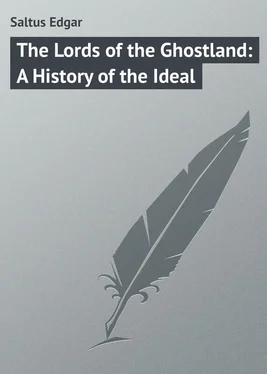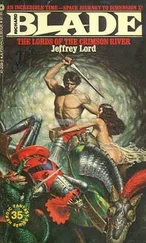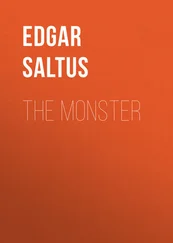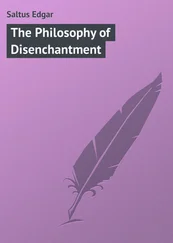Edgar Saltus - The Lords of the Ghostland - A History of the Ideal
Здесь есть возможность читать онлайн «Edgar Saltus - The Lords of the Ghostland - A History of the Ideal» — ознакомительный отрывок электронной книги совершенно бесплатно, а после прочтения отрывка купить полную версию. В некоторых случаях можно слушать аудио, скачать через торрент в формате fb2 и присутствует краткое содержание. Жанр: foreign_prose, на английском языке. Описание произведения, (предисловие) а так же отзывы посетителей доступны на портале библиотеки ЛибКат.
- Название:The Lords of the Ghostland: A History of the Ideal
- Автор:
- Жанр:
- Год:неизвестен
- ISBN:нет данных
- Рейтинг книги:4 / 5. Голосов: 1
-
Избранное:Добавить в избранное
- Отзывы:
-
Ваша оценка:
- 80
- 1
- 2
- 3
- 4
- 5
The Lords of the Ghostland: A History of the Ideal: краткое содержание, описание и аннотация
Предлагаем к чтению аннотацию, описание, краткое содержание или предисловие (зависит от того, что написал сам автор книги «The Lords of the Ghostland: A History of the Ideal»). Если вы не нашли необходимую информацию о книге — напишите в комментариях, мы постараемся отыскать её.
The Lords of the Ghostland: A History of the Ideal — читать онлайн ознакомительный отрывок
Ниже представлен текст книги, разбитый по страницам. Система сохранения места последней прочитанной страницы, позволяет с удобством читать онлайн бесплатно книгу «The Lords of the Ghostland: A History of the Ideal», без необходимости каждый раз заново искать на чём Вы остановились. Поставьте закладку, и сможете в любой момент перейти на страницу, на которой закончили чтение.
Интервал:
Закладка:
Edgar Saltus
The Lords of the Ghostland: A History of the Ideal
"Errons, les doigts unis, dans
l'Alhambra du songe."
I
BRAHMA
THE ideal is the essence of poetry. In the virginal innocence of the world, poetry was a term that meant discourse of the gods. A world grown grey has learned to regard the gods as diseases of language. Conceived, it may be, in fevers of fancy, perhaps, originally, they were but deified words. Yet, it is as children of beauty and of dream that they remain.
"Mortal has made the immortal," the Rig-Veda explicitly declares. The making was surely slow. In tracing the genealogy of the divine, it has been found that its root was fear. The root, dispersed by light, ultimately dissolved. But, meanwhile, it founded religion, which, revealed in storm and panic, for prophets had ignorance and dread. The gods were not then. There were demons only, more exactly there were diabolized expressions invented to denominate natural phenomena and whatever else perturbed. It was in the evolution of the demoniac that the divine appeared. Through one of time's unmeasurable gaps there floated the idea that perhaps the phenomena that alarmed were but the unconscious agents of superior minds. At the suggestion, irresistibly a dramatization of nature began in which the gods were born, swarms of them, nebulous, wayward, uncertain, that, through further gaps, became concrete, became occasionally reducible to two great divinities, earth and sky, whose union was imagined – a hymen which the rain suggested – and from which broader conceptions proceeded and grander gods emerged.
The most poetic of these are perhaps the Hindu. At the heraldings of newer gods, the lords of other ghostlands have, after battling violently, swooned utterly away. But though many a fresher faith has been brandished at them, apathetically, in serene indifference, the princes of the Aryan sky endure.
It is their poetry that has preserved them. To their creators poetry was abundantly dispensed. To no other people have myths been as frankly transparent. To none other, save only their cousins the Persians, have fancies more luminous occurred. The Persians so polished their dreams that they entranced the world that was. Poets can do no more. The Hindus too were poets. They were children as well. Their first lisp, the first recorded stammer of Indo-European speech, is audible still in the Rig-Veda , a bundle of hymns tied together, four thousand years ago, for the greater glory of Fire. The worship of the latter led to that of the Sun and ignited the antique altars. It flamed in Persia, lit perhaps the shrine of Vesta, afterward dazzled the Incas, igniting, meanwhile, not altars merely, but purgatory itself.
In Persia, where it illuminated the face of Ormuzd, its beneficence is told in the Avesta , a work of such holiness that it was polluted if seen. In the Rig-Veda , there are verses which were subsequently accounted so sacred that if a soudra overheard them the ignominy of his caste was effaced.
The verses, the work of shepherds who were singers, are invocations to the dawn, to the first flushes of the morning, to the skies' heightening hues, and the vermillion moment when the devouring Asiatic sun appears. There are other themes, minor melodies, but the chief inspiration is light.
To primitive shepherds the approach of darkness was the coming of death. The dawn, which they were never wholly sure would reappear, was resurrection. They welcomed it with cries which the Veda preserves, which the Avesta retains and the Eddas repeat. The potent forces that produced night, the powers potenter still that routed it, they regarded as beings whose moods genuflexions could affect. In perhaps the same spirit that Frenchmen assisted at a lever du roi , and Englishmen attend a prince's levee, the Aryan breakfasted on song and sacrifice. It was an homage to the rising sun.
The sun was deva . The Sanskrit root div , from which the word is derived, produced deus, devi, divinities – numberless, accursed, adored, or forgot. The common term applied to all abstractions that are and have been worshipped, means That which shines and the name which, in the early Orient, signified a star, designates the Deity in the Occident to-day.
Apologetically, Tertullian, a Christian Father, remarked: "Some think our God is the Sun." There were excuses perhaps for those that did. Adonai, a Hebrew term for the Almighty, is a plural. It means lords. But the lords indicated were Baalim who were Lords of the Sun. Moreover, when the early Christians prayed, they turned to the East. Their holy day was, as the holy day of Christendom still is, Sunday, day of the Sun, an expression that comes from the Norse, on whom also shone the light of the Aryan deva.
To shepherds who, in seeking pasture for their flocks, were seeking also pasture for their souls, the deva became Indra. They had other gods. There was Agni, fire; Varuna, the sky; Maruts, the tempest. There was Mithra, day, and Yama, death. There were still others, infantile, undulant, fluid, not infrequently ridiculous also. But it was Indra for whom the dew and honey of the morning hymns were spread. It was Indra who, emerging from darkness, made the earth after his image, decorated the sky with constellations and wrapped the universe in space. It was he who poured indifferently on just and unjust the triple torrent of splendour, light, and life.
Indra was triple. Triple Indra, the Veda says. In that description is the preface to a theogony of which Hesiod wrote the final page. It was the germ of sacred dynasties that ruled the Aryan and the Occidental skies. From it came the grandiose gods of Greece and Rome. From it also came the paler deities of the Norse. Meanwhile ages fled. Life nomad and patriarchal ceased. From forest and plain, temples arose; from hymns, interpretations; from prayer, metaphysics; for always man has tried to analyze the divine, always too, at some halt in life, he has looked back and found it absent.
In meditation it was discerned that Indra was an effect, not the cause. It was discerned also that that cause was not predicable of the gods who, in their undulance and fluidity, suggested ceaseless transformations and consequently something that is transformed.
The idea, patiently elaborated, resulted in a drainage of the fluid myths and the exteriorisation of a being entirely abstract. Designated first as Brahmanaspati, Lord of Prayer, afterward more simply as Brahma, he was assumed to have been asleep in the secret places of the sky, from which, on awakening, he created what is.
The conception, ideal itself, was not, however, ideal enough. The labour of creating was construed as a blemish on the splendour of the Supreme. It was held that the Soul of Things could but loll, majestic and inert, on a lotos of azure. Then, above Brahma, was lifted Brahm, a god neuter and indeclinable; neuter as having no part in life, indeclinable because unique.
There was the apex of the world's most poetic creed, one distinguished over all others in having no founder, unless a heavenly inspiration be so regarded. But the apex required a climax. Inspiration provided it.
The forms of matter and of man, the glittering apsaras of the vermillion dawns, Indra himself, these and all things else were construed into a bubble that Brahm had blown. The semblance of reality in which men occur and, with them, the days of their temporal breath, was attributed not to the actual but to Mâyâ – the magic of a high god's longing for something other than himself, something that should contrast with his eternal solitude and fill the voids of his infinite ennui. From that longing came the bubble, a phantom universe, the mirage of a god's desire. Earth; sea and sky; all that in them is, all that has been and shall be, are but the changing convolutions of a dream.
Читать дальшеИнтервал:
Закладка:
Похожие книги на «The Lords of the Ghostland: A History of the Ideal»
Представляем Вашему вниманию похожие книги на «The Lords of the Ghostland: A History of the Ideal» списком для выбора. Мы отобрали схожую по названию и смыслу литературу в надежде предоставить читателям больше вариантов отыскать новые, интересные, ещё непрочитанные произведения.
Обсуждение, отзывы о книге «The Lords of the Ghostland: A History of the Ideal» и просто собственные мнения читателей. Оставьте ваши комментарии, напишите, что Вы думаете о произведении, его смысле или главных героях. Укажите что конкретно понравилось, а что нет, и почему Вы так считаете.











